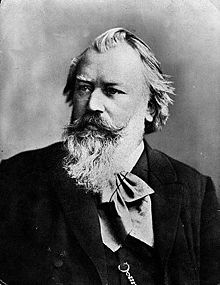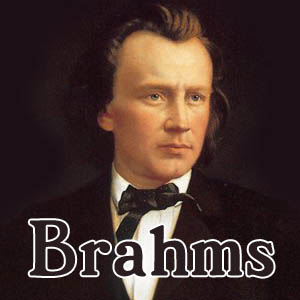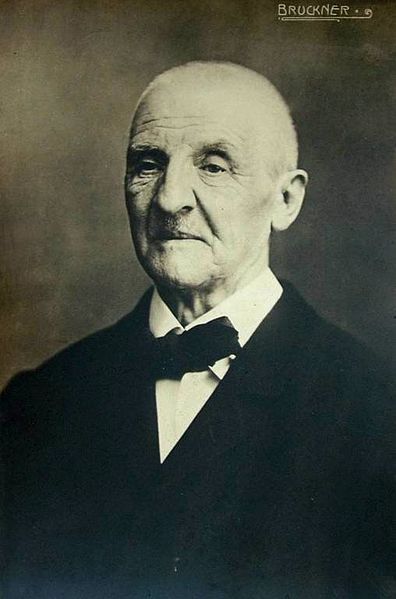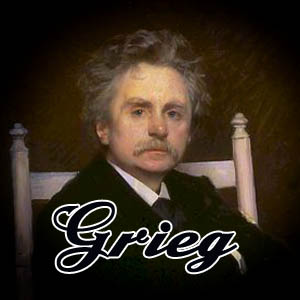
|
Next up: “The Creature from the Black Lagoon.” The monster scared me as a kid. That was the point, I gather.
Usually I thrill you with my weekend movie choices, most of which are modern and bad. Somethings you have to see out of obligation, because you can’t discuss pop culture at a panel somewhere unless you’ve seen “Transformers 3” and understood the deep meaning. It’s ridiculous to think about “Transformers 3” for more than six seconds, since it concerns “living mechanical creatures” who evolved into bipeds capable of rearranging their structure to resemble cars and trucks, even though these things do not exist on their planet. They were known as Autobots, even though those things do not exist on their planet. Then they got into a war with the Decepticons, beings who display absolutely no skill at nomenclature. If you are in the business of deception, so much so that it permeates your entire culture, it does you no service to announce the fact in your name. “Are you telling me the truth, Mr. Decepticon?” “Oh, absolutely.” But if this bothers you, consider that you are watching a movie that has a robot from another planet who speaks in a Scottish accent. There are no words to describe the complete & utter . . . AUUUUUGHHHHH that produces in your critical brain. You can buy everything else, if you want; you can even make up some story about how they can really shape-shift into anything, not just cars, and “Autobots” is what it sounds like in our language, and really they call themselves something else, but when a character from the other side of the galaxy WHO IS A ROBOT talks in the accent of a particular part of a small island in the Northern Hemisphere, you know you’re dealing with large groups of people who don’t give a crap. The entire franchise is predicated on the unwillingness of anyone to ever utter the phrase “but that makes absolutely no sense” during any part of the creative process. Oh, I know why he speaks with a Scottish accent: he’s an engineer, and Scotty had such an accent. Ergo. Of course ergo. But it’s still wrong. So it’s all stupid. It’s a stupid cartoon for little boys. This is fine if your inner little-boy can be coaxed out to enjoy the carnage, and your adult brain can enjoy the disjointed flow (action! broad comedy! heartwarming stuff! offkilter guy yelling a lot! action! drama!) and skip all the Trials of Shia nonsense that fill up the first hour.The only reason it has any resonance to someone who meets the technical definition of adulthood is because A) Optimus Prime sounds really wise and noble and moving, and damn, you just like the big guy, and B) it’s interesting to watch all that stuff coming at you. The CGI on this thing is just amazing. The battle in Chicago, which consumes the final seven hours of the movie, is a thing to behold. Unfortunately, it too infested with humans. The script is designed to make you loathe every moment wasted with the human actors. GET BACK TO THE ROBOTS! No one acts like people act. No one says things people would say in these situations. Everyone is an archetype devoid of embellishment. The only way to watch the movie is to hit the NEXT CHAPTER button and unless there is a robot in the FIRST SECOND OF THE CHAPTER, hit next, because they had their chance to give you robots and they missed it. Repeat until movie is over. I’ve been working on some classical music iTunes art. Anyone with classical music in their collection knows the tags are a nightmare; you get tempi for titles, perhaps. (There’s a name for a novel about the romantic life of a young, single, female programmer who gives up her job as an iTunes coder to move to Italy and experience Life. “Tempi for Titles,” with Anne Hathaway! ) “Largo; molto slowissimo” may be an accurate description of the adagio, but it doesn’t tell you the symphony or the movement. Sometimes you’ll find that in the artist information, if there’s not “Stanislaw Scrotumbrethsi / Moldavian State Orchestra” already occupying that spot. Album art? Forget it. The best database-scrapers can’t find these titles, and if they do, it’s a shot of the conductor lifting up a baton, or a public-domain painting from the 18th century of some trees. Old CDs used to break up symphonies into chunks based on tempi as well, so one slab of Mahler is shattered like Bonomo Turkish Taffy into 16 useless little fragments. A while ago I set about rewriting all the names so the title is Composer : Work : Movement, and I don’t give a damn about the key. Sorry. As for art, I had pictures of the composers, but to be honest I don’t always remember the difference between Elgar and Holst and Sullivan and Walton. When I decided to redo the art I decided to go with color and younger pictures, if possible. Everyone remembers Brahms as Old Man Autumn with his wire-brush beard:
But he was this, too.
So that's the art I use. How about this fellow?
Yes, it's him:
There are few photos of Mahler. The most famous were taken in his late 40 - looks like he’s made out of some highly-polished leather. I went with a younger picture:
When we only know the composer from the older picture, we think that’s the guy who wrote the first symphony. It was but it wasn’t. Old Bruckner looked like a dolorous old bird:
And not just in appearance. There was something profoundly sad about him, what with the twisted sex thing. At least it was a twisted sex thing he never seems to have acted upon, aside from that one accusation of impropriety - but who knows how they defined that back then. (He liked teen girls. Died a virgin.) It’s never affected my enjoyment of his music, which comes from somewhere else. Either he was just a doorway to a creative force inside himself separate from his own psyche - which, of course, is nonsense - or he made these landscapes as a place of such Olympian perfection they were a refuge from the world of dirt and sin. Or they were uncomplicated hymns to his two gods, Wagner and God. Or all or nothing. It doesn’t matter. If you know Bruckner you know what I mean: the movements are monoliths. They make you feel very small, but all the more exalted for it. The larger the work, the larger you feel, but you’re still just a mote alongside the rising mountains. So I made one with Anton as a younger fellow.
I like this one of Grieg:
. . . and finally, George.
----
Another day, long ago: I can’t say where or when. But there was some combination of things - the temp, the sky, the quality of the sun - that wrapped around a mood, formed a memory, and was duly stored in the great drawer of indistinct recollections. When I was a kid I had an attachment to misty mid-fall days; they had a certain private pleasure that may have begun with nothing more important than walking home in a good mood, looking forward to the toasty house and a snack and some time with a comic book. These things are forged at an impressionable age; they make for impossible standards. They serve no function: what are we do with with these memories, anyway? With these emotions? If I can remember this, why not anything else? A new book says that the “Sybil” story is a huge stinking crock, and that’s no surprise to many. Never bought “multiple personalities” and never believed that hidden buried memories could be coaxed out by psychiatric technicians. They always dug up the bad stuff. It’s apparent to anyone that the good stuff is buried just as deep, and behind doors that have no tumblers, no keyhole. The brain is unsentimental: it sees no practical use for that stuff, so there’s no reason you should access it. But it’s all there, a movie playing in an empty theater - Except sometimes the EXIT door is ajar and you hear something or catch a glimpse of the scene reflected against the empty seats, and you just know you’re connecting with something. When I walked out of the office today I stopped, suddenly full of a recollection of a thing or day I could not recollect. I just knew I knew it, and I knew it was good, and I was glad to remember it. --- Now. You’re going to have to trust me on the rest of this. I wrote the above as something to put on top of the Bleat, a lead-in to the rest of the silliness. When I got to the end of the last paragraph I wrote the phrase I just knew I knew it, and got a chill, because there’s a moment in my life that defies all logical and empirical explanation, and sounds sentimental and deluded to describe, but it happened, and when it happened I just knew I was right about what I’d felt, and I’ve never questioned it. Yes, it was good. And yes, I am glad to remember it. But that came later. What I’m telling you about the moment when I stepped outside is this: it was fifteen years to the day, and fifteen years to the hour, since my mother died.
|
||||||||||||
|
|||||||||||||
| blog comments powered by Disqus |

|







 I tried to get into the Halloween Mood over the weekend - seems obligatory - by watching the original “Wolfman.” Love those old Universal monster movies. You’ve seen the famous sequence where Lon Chaney Jr. turns into the hairy-faced beast, right? Not in the movie. That’s in a latter film. In the first one we see his feet turn hairy. That’s it. People love this movie because Chaney’s such a decent sort, tormented by his fate, and there’s that, but he comes off as something of a dolt, too. Big dumb lummox. Reading his wikipedia bio I learned that his father discouraged him from going into acting - wise, pop, wise - and Lon Junior “attended business college and became successful in a Los Angeles appliance corporation.” Then he became the Wolfman. Only in America.
I tried to get into the Halloween Mood over the weekend - seems obligatory - by watching the original “Wolfman.” Love those old Universal monster movies. You’ve seen the famous sequence where Lon Chaney Jr. turns into the hairy-faced beast, right? Not in the movie. That’s in a latter film. In the first one we see his feet turn hairy. That’s it. People love this movie because Chaney’s such a decent sort, tormented by his fate, and there’s that, but he comes off as something of a dolt, too. Big dumb lummox. Reading his wikipedia bio I learned that his father discouraged him from going into acting - wise, pop, wise - and Lon Junior “attended business college and became successful in a Los Angeles appliance corporation.” Then he became the Wolfman. Only in America. 









